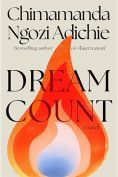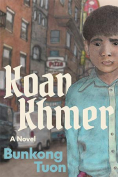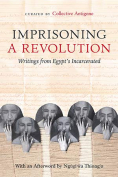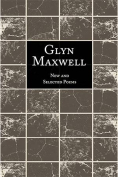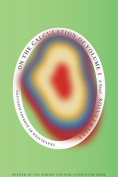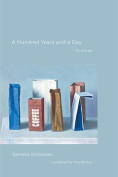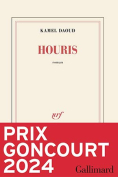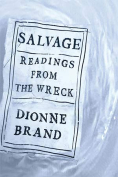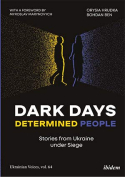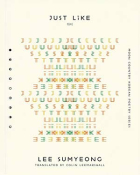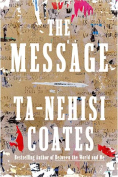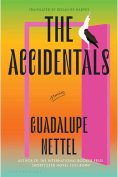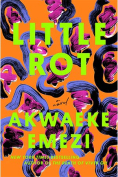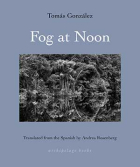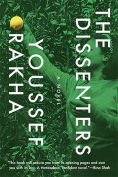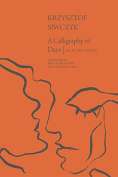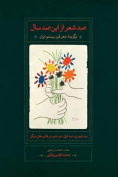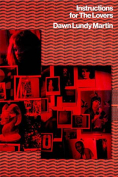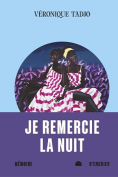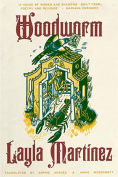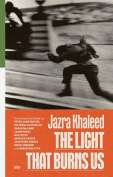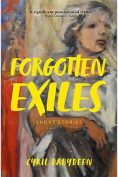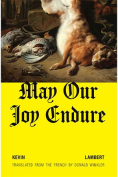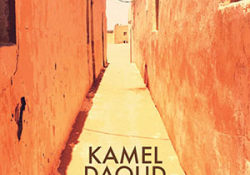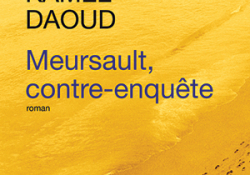Houris by Kamel Daoud
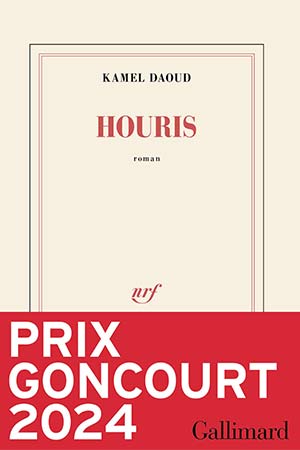
Paris. Gallimard. 2024. 416 pages.
The new novel by the author of Meursault, contre-enquête (2014; see WLT, March 2015, 56) and Zabor ou les psaumes (2017; see WLT, May 2018, 74) uses the fictional device of a young female narrator who is mute in order to evoke the décennie noire (dark decade), the bitterly fought civil war in Algeria that resulted in approximately two hundred thousand deaths during the 1990s. While the war opposed the Algerian government (in practical terms, the army) and various fundamentalist Islamist groups, the largest percentage of victims were civilians who were targeted mostly by the well-armed and utterly ruthless fundamentalists. The political aftermath was at best bizarre, since many of those who committed the worst atrocities during the war were never brought to trial, due to a controversial governmental policy of amnesty for the killers. In fact, it is forbidden by law in Algeria to speak or write openly about the slaughter that regularly occurred during the dark decade. An excerpt of that harsh law (it entails up to five years in jail) serves as an epigraph to Houris, which partly explains why Kamel Daoud now lives in France.
The novel’s main narrator has two names: Fajr and Aube—Dawn in Arabic and French—or, as she calls them, her external and internal languages. Like so many other victims of the war, her throat was slit (an early chapter establishes a parallel with the sheep that are slaughtered for Eid al-Adha, the most important Islamic holiday). While her entire family was eliminated, Aube miraculously survived but lost her vocal cords and her ability to speak. Along with a highly visible scar, she is forced to live with a tube inserted in her throat that allows her to breathe. As she puts it, the scar is “the long calligraphic signature of the murderer who didn’t have enough time to finish me off.” Adopted by an unmarried female lawyer (who herself was abandoned as a baby), Aube received a good education and now runs a hair salon. Ironically, it is situated across the street from a mosque, where a fanatical imam rails against any visible trace or symbol of femininity. As the narrative opens, Aube is faced with a terrible dilemma for a young Algerian woman: she is unmarried and pregnant.
Most of Daoud’s complex narrative is made up of Aube’s interior monologue, in large part directed at her unborn daughter. At first, Aube cannot seem to bring herself to give birth to a girl in a society where the oppression of women is institutionalized. She compares her child to a houri, one of the beautiful light-skinned virgins who are promised to devout Muslim men after death, as a reward in the paradise described by the loudspeakers of the mosque across the street from Shéhérazade, Aube’s provocatively named hair salon. Before she can decide whether or not to obtain an abortion, Aube sets off impulsively on a road trip to see what is left of the village where her family and neighbors were slaughtered, one by one. Two decades after the massacre, she remains haunted by the image of her dead sister, while she managed to survive. Aube’s encounters during the dangerous trip, in a country where women are told not to travel alone, will prove to be cathartic.
In interviews, Daoud has stated that his highly stylized novelistic narrative, in spite of its allegorical dimension, is based on factual situations (including the gender-based rivalry between a mosque and a neighboring hair salon) that he witnessed when he was working as a journalist in the coastal city of Oran, Algeria’s second largest. The novel’s title is a clear reference to the ways in which the mortiferous myth of the houris eroticizes death, instead of life, thus breeding contempt for living, breathing women. At one level, this is a historical novel that seeks to unearth the repressed memory of a nationwide tragedy. At another level, it is the deeply moving story of a young woman’s journey toward overcoming the multiple traumas she has endured. The fact that the two narrative levels are so successfully intertwined makes Houris an excellent and very memorable novel.
Edward Ousselin
Western Washington University
